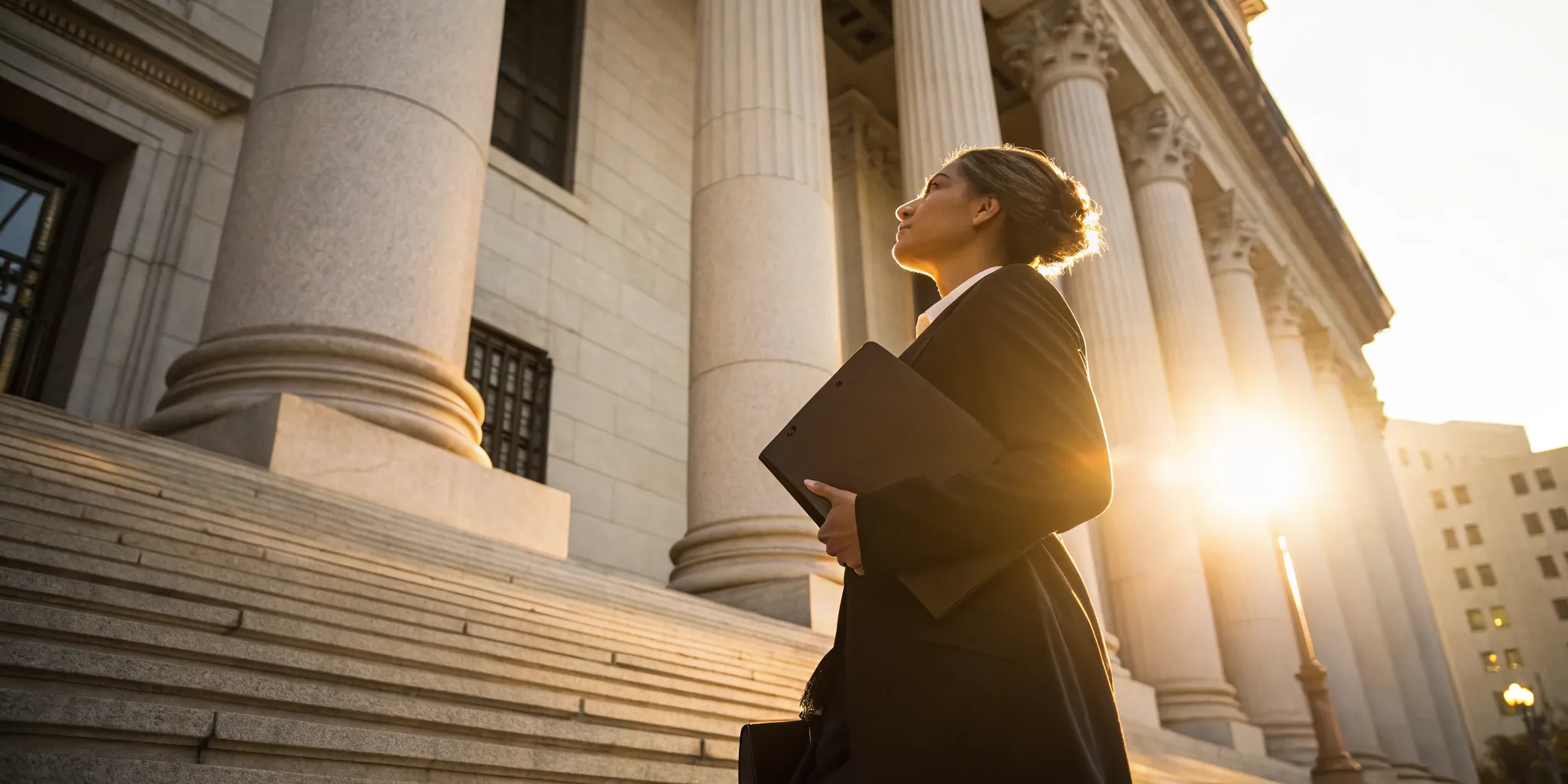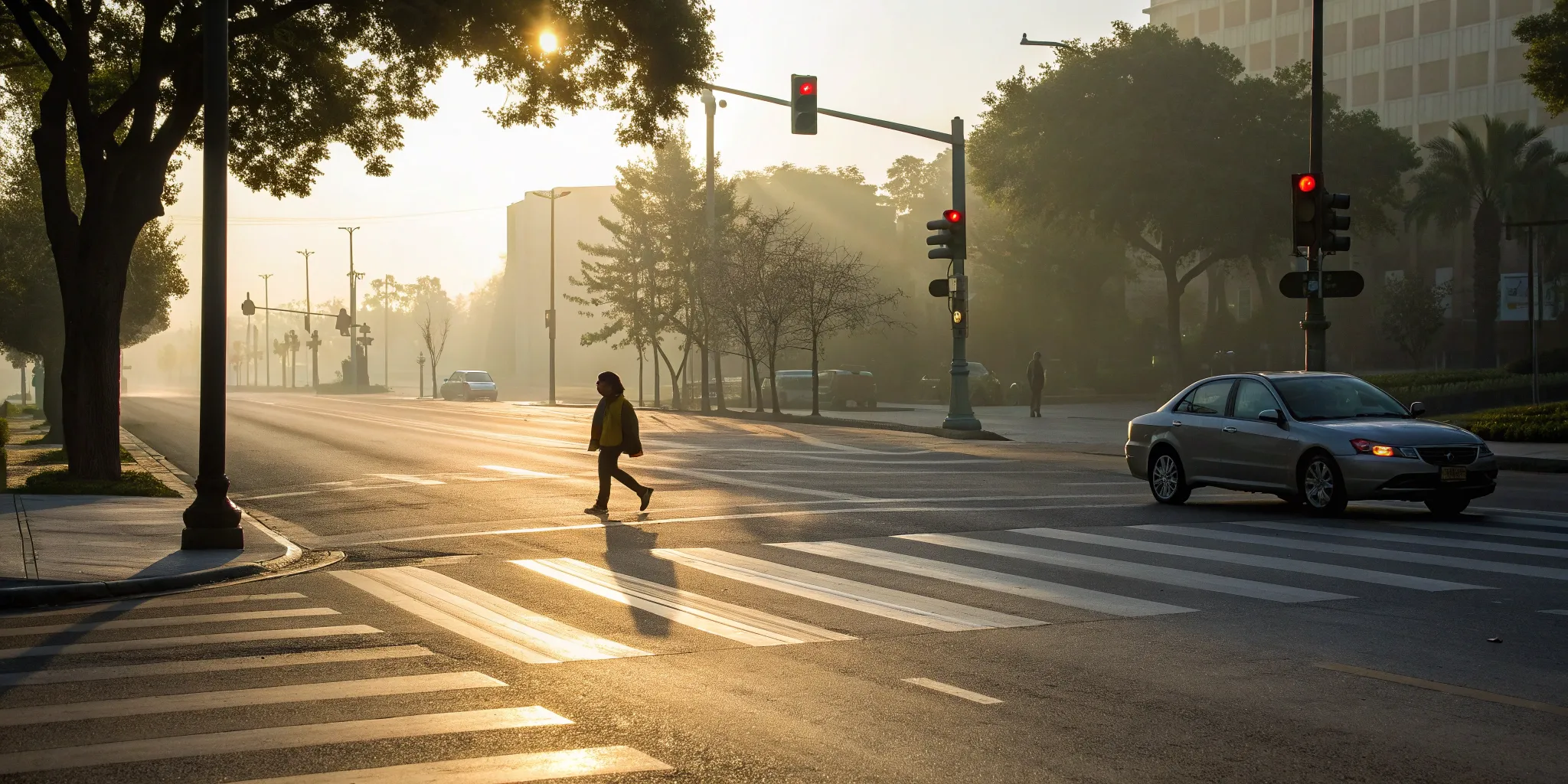What you don’t do after a car accident can be just as important as what you do. It’s natural to want to apologize or to quickly accept an insurance company’s first offer just to make it all go away. Unfortunately, these common reactions can seriously harm your case. This guide is designed to help you sidestep those pitfalls. We’ll outline the crucial actions that protect your well-being and your legal standing, ensuring you don’t unintentionally weaken your claim. Understanding what to do after a car accident means being prepared to advocate for yourself from the very beginning.
Key Takeaways
- Get a medical check-up immediately, even if you feel unhurt. Adrenaline can hide serious injuries, and creating an official medical record right away is crucial for connecting any health issues to the accident.
- Control the narrative by documenting everything. Use your phone to capture photos, videos, and witness information at the scene. This evidence is your most powerful tool for establishing the facts before memories fade.
- Protect your claim by being cautious with insurers. Never admit fault or give a recorded statement without legal advice, and be wary of quick settlement offers, as they rarely cover the full cost of your recovery.
Your Immediate Post-Accident Checklist
The moments after a car crash are disorienting and stressful. Your adrenaline is pumping, and it’s hard to think clearly. That’s why having a mental checklist is so important. Following these immediate steps can help protect your safety, your health, and your legal rights from the very beginning. Think of this as your guide to getting through those first critical minutes.
Prioritize Safety and Check for Injuries
Before you do anything else, take a moment to assess the situation. Check yourself for injuries first. Adrenaline can mask pain, so be thorough. If you have passengers, check on them next. Once you’ve confirmed everyone in your car is accounted for, check on the occupants of the other vehicle if it’s safe to do so. Some personal injuries are obvious, but others may not appear until hours or days later. If anyone is hurt, tell the 911 operator immediately so they can dispatch medical help. Your well-being is the absolute top priority.
Move to a Safe Location, If Possible
If the accident was minor and your car is still drivable, the safest thing to do is move it to the side of the road and out of the flow of traffic. Pull over to the shoulder or into a nearby parking lot. This helps prevent a second, more serious collision with oncoming cars and keeps everyone involved safer while you wait for help to arrive. If your car is too damaged to move, leave it where it is, but make sure you and your passengers can get to a safe spot away from the road, like a sidewalk or median.
Call 911
No matter how minor the collision seems, you should always call 911. A police officer will create an official accident report, which is an essential piece of evidence for any insurance claim or legal action. When the police arrive, calmly and accurately describe what happened. Stick to the facts and avoid guessing or speculating about details you’re unsure of. It’s crucial not to apologize or admit fault, as this can be used against you later. Just provide a clear, honest account of the events as you remember them to the officer.
Turn On Your Hazard Lights
As soon as you can, turn on your vehicle’s hazard lights. This is a universal signal for distress and warns other drivers to slow down and proceed with caution. It’s a simple action that significantly increases your visibility, especially if the accident happens at night, during bad weather, or on a busy road. Even if you’ve moved your car to the shoulder, keeping your flashers on helps ensure that other motorists see you clearly. This small step is crucial for preventing another potential accident while you’re waiting for the police to arrive and secure the scene.
Stay at the Scene
It is critical that you remain at the scene of the accident until the police have arrived and you have exchanged information with the other driver. Leaving the scene of an accident, particularly one involving injuries, can lead to serious criminal charges. Even if you feel fine and the damage seems minimal, stay put. Waiting for law enforcement and properly documenting the incident are fundamental steps in protecting your rights. If you have questions about your responsibilities after a crash, you can always contact us for a free consultation to understand your next steps.
How to Document the Accident Scene
After an accident, your mind is likely racing, but taking a few minutes to document the scene is one of the most important things you can do. The information you gather in these moments can become critical evidence if you need to file an insurance claim or pursue a personal injury case. Your phone is your most powerful tool here. Use it to capture photos, videos, and notes that create a clear and accurate record of what happened. This documentation helps establish the facts before memories fade or details get confused. Think of yourself as a reporter on the scene—your goal is to capture the who, what, where, and when of the incident. This evidence protects you from inaccurate claims and provides your legal team with the foundation they need to build a strong case on your behalf. It’s about creating a reliable snapshot of the moment, which can be invaluable later on. By methodically collecting this information, you are taking control of the narrative and ensuring your side of the story is supported by solid proof. It might feel overwhelming, but these simple steps can make a significant difference in the outcome of your case.
Take Photos and Videos
Use your smartphone to take as many photos and videos as you can from different angles. Capture the damage to all vehicles involved, getting both wide shots to show their positions and close-ups of the specific impact points. Don’t forget the surrounding area. Photograph any skid marks on the road, debris from the crash, relevant traffic signs, and the general road conditions. If the weather was a factor, try to capture that, too. A short video where you walk around the scene can also be incredibly helpful, as it provides a 360-degree view and can capture details you might miss in still photos.
Gather Witness Information
If anyone saw the accident happen, they can be a valuable, impartial resource. Politely ask any witnesses if they would be willing to provide their name and contact information, such as a phone number or email address. Don’t ask them to write a statement on the spot, as that can feel intimidating. Simply getting their contact details is enough for now. An independent witness account can be crucial, especially in situations where the other driver’s story doesn’t match the facts. Their testimony can help clarify liability and support your version of events when dealing with insurance companies.
Note the Road and Weather Conditions
The environment can play a significant role in a car accident. Make a quick note of the specific circumstances at the time of the crash. Was it raining, foggy, or was there a strong sun glare? What were the road conditions like—was the pavement wet, were there potholes, or was it an active construction zone? Also, write down the exact date and time the accident occurred. These details might seem small, but they can provide important context that helps paint a complete picture of the incident for insurance adjusters and your attorney.
Exchange Driver and Vehicle Information
You must exchange key information with the other driver or drivers involved. Be calm and cooperative, but stick to the facts. You’ll need to get their full name and contact information, driver’s license number, and license plate number. Also, be sure to note the make, model, and color of their vehicle. The easiest way to do this accurately is to simply take a clear photo of their driver’s license and the back of their car, making sure the license plate is legible. This prevents any mistakes that can happen when you’re trying to write things down under stress.
Collect Insurance Details
Along with their personal information, you’ll need to get the other driver’s insurance details. Ask to see their insurance card and get the name of their insurance provider and their policy number. Again, the simplest and most accurate method is to take a clear, well-lit photo of their insurance card with your phone. This ensures you have the correct information when you report the accident to your own insurer and when your legal team needs to contact the other party’s insurance company. Having this information ready will streamline the entire claims process from the very beginning.
Know Your Legal Rights and Responsibilities
After an accident, the legal and administrative details can feel overwhelming. But understanding your rights and responsibilities from the very beginning is one of the most powerful steps you can take. It helps you protect yourself from being taken advantage of and ensures you’re on the right path to getting the support you deserve. Knowing what to do—and what not to do—can make a significant difference in the outcome of your insurance claim and any potential legal action. Let’s walk through the key legal points you need to be aware of.
Understand State Reporting Rules
Even for what seems like a minor fender-bender, reporting the accident is a crucial step. While police may not respond to every minor incident, having an official record is always a good idea. Your state will have specific rules about when an accident must be reported, often based on the amount of damage or if there are injuries. Regardless, you should always gather essential information at the scene. This includes the full names, addresses, phone numbers, and driver’s license numbers of everyone involved, including drivers, passengers, and any witnesses who saw what happened. This documentation is your first line of defense.
Get a Copy of the Police Report
If the police do come to the scene, their report becomes a vital piece of evidence. When you speak with the officer, stick to the facts of what happened without speculating or guessing. Be clear and honest. Before they leave, make sure to ask for the officer’s name and badge number. You should also find out how you can get a copy of the official police report. This document is incredibly important for your insurance company and will be a cornerstone of any personal injury claim you might need to file later on. It provides an objective account of the incident that can be difficult to dispute.
Watch What You Say
In the moments after a crash, it’s natural to feel shaken up, and you might be tempted to apologize. Resist this urge. Never say “I’m sorry” or admit that the accident was your fault, even if you think it might have been. These statements can be interpreted as an admission of guilt and used against you by insurance companies to reduce or deny your claim. Stick to factual statements when talking to the other driver and the police. Your focus should be on safety and gathering information, not assigning blame at the scene. Let the facts and the evidence speak for themselves.
Be Aware of Claim Deadlines
Time is a critical factor after a car accident. Every state has a “statute of limitations,” which is a legal deadline for filing a lawsuit. If you miss this window, you could lose your right to seek compensation for your injuries and damages forever. These deadlines vary depending on where you live and the specifics of your case. Your insurance policy will also have its own deadlines for reporting the accident and filing a claim. It’s essential to act quickly and be aware of these time limits to protect your rights. Don’t let a simple deadline prevent you from getting the help you need.
Choose Your Own Repair Shop
After an accident, your insurance company might suggest a specific auto body shop for repairs. While their recommendation might be convenient, you are not required to use their preferred vendor. In most states, you have the legal right to choose your own repair shop. This allows you to select a mechanic you trust or one that has excellent reviews, ensuring your vehicle gets quality repairs. Don’t let an insurance adjuster pressure you into going somewhere you’re not comfortable with. Get a few estimates and make the choice that’s best for you and your car. It’s your vehicle, and you have the final say.
Protect Your Right to Compensation
You pay for insurance to protect you when things go wrong, and you have a right to the benefits outlined in your policy. Your insurance company has a responsibility to act in good faith. This means they must clearly explain all your policy benefits and rules, and they are required to respond to your communications within a reasonable timeframe. If you feel the insurance company is delaying your claim, offering an unfairly low settlement, or not communicating properly, you may need to advocate for your right to compensation. Don’t be afraid to ask questions and push for what you are owed.
Why Medical Care Is Your Top Priority
After a car accident, your mind is likely racing with thoughts about insurance, car repairs, and what to do next. But before you deal with any of that, your absolute first priority should be your health. Seeking prompt medical attention is not just essential for your physical recovery; it also creates a crucial record that will support you if you need to file an insurance claim or pursue legal action. Your well-being comes first, and taking care of yourself is the most important step you can take in the moments, days, and weeks following a crash.
Get Medical Attention Immediately
Even if you think you’re fine, it’s vital to get a medical evaluation right after an accident. If anyone is obviously hurt, call 911 without hesitation. The shock and adrenaline from a crash can easily mask pain, and what seems like a minor ache could be a sign of a more serious issue. A professional medical assessment can identify injuries you might not be aware of, like internal bleeding or a concussion. Getting checked out immediately ensures you receive the necessary care and officially documents any injuries from the accident. This medical report is a critical piece of evidence if you need to seek compensation for a personal injury.
Watch for Delayed Symptoms
It’s common to feel okay immediately after a collision, only to wake up the next day with significant pain and stiffness. Some injuries, particularly whiplash, back problems, and soft tissue damage, have delayed symptoms that can take hours or even days to appear. Don’t dismiss any new aches or pains that surface after the accident. If you start experiencing headaches, dizziness, numbness, or neck and back pain, see a doctor as soon as possible. Letting these symptoms go unchecked can worsen your condition and make recovery more difficult. A timely diagnosis connects your injury directly to the accident, which is essential for your health and any future claims related to a medical injury.
Follow All Medical Advice
Once you’ve seen a doctor, it’s incredibly important to follow their treatment plan exactly as prescribed. This means attending all follow-up appointments, going to physical therapy sessions, taking your medication, and respecting any work or activity restrictions. Deviating from your doctor’s orders can hinder your recovery. It can also give an insurance company a reason to argue that your injuries aren’t as serious as you claim, potentially weakening your case. Sticking to your treatment plan shows that you are taking your health seriously and doing everything you can to get better. Your commitment to recovery is not only good for you but also demonstrates the true extent of your injuries.
Keep Detailed Medical Records
From your very first doctor’s visit, start a file to keep all of your medical documentation organized. This includes everything from emergency room reports and doctor’s notes to prescription receipts and physical therapy schedules. You should also keep a simple journal to track your symptoms, pain levels, and how your injuries are affecting your daily life. Note any days you missed from work or activities you can no longer do. This detailed documentation provides a clear and comprehensive picture of your physical, emotional, and financial damages. These records are invaluable when it comes time to file an insurance claim or if you need to prove the extent of your losses in a legal case.
Consider Long-Term Health Effects
Some car accident injuries can have lasting consequences that affect your life for years to come. It’s important to discuss the potential for long-term effects with your doctor. This could include chronic pain, permanent mobility issues, or the need for ongoing medical care. In serious cases, you might require modifications to your home or vehicle to accommodate a disability. Understanding the full scope of your injuries and future medical needs is crucial for ensuring you receive fair compensation that covers not just your current bills but also your long-term care. The team at Counsel Hound understands that recovery is a marathon, not a sprint, and is prepared to help you account for all future needs.
How to Handle the Insurance Claim Process
Dealing with insurance companies after an accident can feel like a full-time job. The process is often confusing, and it’s easy to feel pressured into making quick decisions. But remember, you are in control. The goal is to make sure you are fairly compensated for your injuries and property damage. Taking a methodical approach can make a huge difference in the outcome of your claim. It starts with reporting the accident promptly and continues with careful documentation and communication every step of the way. Be prepared, stay organized, and don’t hesitate to ask for help if you feel overwhelmed.
Report the Accident to Your Insurer
One of your first calls should be to your own insurance company to report the accident. Do this as soon as you can, even if you believe the other driver was at fault. Your policy likely requires you to provide prompt notification. When you call, stick to the facts you know for sure: where and when the accident happened, the vehicles involved, and the name of the other driver’s insurance company. You generally have the option to file a claim with your own insurer or with the other driver’s. If fault is unclear, starting with your own company is often the simplest path forward.
Deal Carefully with Insurance Adjusters
Soon after you file a claim, an insurance adjuster will contact you. It’s important to remember that the adjuster’s job is to protect the insurance company’s financial interests, not yours. They may seem friendly and helpful, but their goal is often to settle the claim for the lowest amount possible. Be polite but cautious. You don’t have to give a recorded statement right away, especially if you’re still processing the accident or receiving medical care. It’s perfectly acceptable to say you’re not ready and would like to speak with an attorney first.
Understand Your Policy Coverage
The best time to understand your insurance policy is before you need it, but a post-accident review is the next best thing. Pull out your policy documents or log in to your insurer’s online portal and read through your coverage. Pay close attention to your liability limits, collision and comprehensive coverage, and any medical payments (MedPay) or personal injury protection (PIP) you might have. Knowing what your policy covers will help you understand what you’re entitled to and prepare you for conversations with the adjuster. This knowledge empowers you to advocate for yourself effectively throughout the claims process.
File a Comprehensive Claim
When you officially file your claim, provide as much detailed information as you can. This is where all the documentation you gathered at the scene becomes critical. Your claim should include the police report number, the other driver’s information, photos of the damage and the scene, and contact details for any witnesses. A thorough and well-documented initial claim can help speed up the process and reduce the chances of disputes later on. If you miss something, you can usually add it, but starting with a strong, comprehensive file sets a professional tone from the beginning.
Don’t Accept a Quick Settlement
Insurance companies sometimes offer a quick settlement, hoping you’ll take the money and close the claim before you realize the full extent of your injuries or damages. Be wary of these early offers. It can take weeks or even months to understand the long-term medical treatment you might need or the true cost to repair your vehicle. Accepting a settlement too soon means you forfeit your right to seek further compensation. It’s always wise to wait until you have a complete picture of your losses before agreeing to any offer. A personal injury attorney can help you evaluate an offer to ensure it’s fair.
Track All Accident-Related Expenses
From the moment the accident happens, start a file to track every single related expense. This isn’t just about the big-ticket items like medical bills and car repair estimates. Include everything: prescription costs, mileage to and from doctor’s appointments, rental car fees, and any lost wages from time off work. Keep every receipt and invoice organized. This detailed record is crucial evidence to support your claim for full compensation. Without it, you risk paying out-of-pocket for costs that should have been covered by the settlement.
Common Mistakes to Avoid After a Crash
The moments after a car accident are chaotic and stressful. With adrenaline pumping, it’s easy to say or do something that could unintentionally harm your ability to get fair compensation later. Knowing what not to do is just as important as knowing what to do. By avoiding these common missteps, you can protect your health and your legal rights from the very beginning. Think of this as your guide to sidestepping the pitfalls that insurance companies hope you’ll fall into. When you’re feeling overwhelmed, focusing on what to avoid can simplify your next steps and help you maintain control over your situation.
Delaying Medical Treatment
Even if you feel fine, don’t skip a medical evaluation. The shock of a crash can mask serious injuries like whiplash, concussions, or internal bleeding, which may not show symptoms for hours or even days. Seeking prompt medical attention is crucial for two reasons. First and foremost, it’s for your health. Second, it creates an official record that links your injuries directly to the accident. This medical documentation is a cornerstone of any future personal injury claim. An insurance company will have a much harder time arguing your injuries aren’t related to the crash if you have a doctor’s report from the same day.
Admitting Fault
Be very careful with your words at the accident scene. A simple, polite “I’m so sorry” can be twisted by an insurance adjuster and used as an admission of guilt. You may not have all the facts about what caused the crash, so avoid speculating or accepting blame. When you speak with the other driver, passengers, and police, stick to the objective facts of what happened. State what you saw and what you did, but let the investigators and legal professionals determine who was at fault. Your priority is to be cooperative and truthful without jeopardizing your case.
Posting on Social Media
In the age of social sharing, your online activity can become evidence. Insurance companies frequently investigate claimants’ social media profiles, looking for anything that contradicts their injury claims. A photo of you smiling at a family barbecue or a post about taking a walk could be used to argue that you aren’t as injured as you say you are. The safest course of action is to refrain from posting anything about the accident, your recovery, or your daily activities until your case is resolved. It’s also a good idea to ask friends and family not to post photos of you or tag you in posts.
Giving a Recorded Statement
Soon after the accident, you will likely get a call from the other driver’s insurance adjuster asking for a recorded statement. You are not required to provide one, and it’s almost always in your best interest to politely decline until you’ve spoken with an attorney. These adjusters are trained to ask leading questions designed to get you to say something that minimizes their company’s liability. They may try to get you to downplay your injuries or admit partial fault. Before you agree to any recorded conversations, it’s wise to seek legal advice.
Signing Documents Without Legal Review
Insurance companies may offer you a quick settlement and ask you to sign a release form. Be extremely cautious. These documents are legally binding and, once signed, you typically forfeit your right to seek any further compensation for your injuries, even if they turn out to be more severe than you initially thought. A lowball offer might seem tempting when bills are piling up, but it rarely covers the full extent of your damages. Never sign any insurance paperwork without having an experienced attorney review it first to ensure your rights are protected.
Forgetting Key Documentation
In the confusion following a crash, it’s easy to forget to gather crucial information. Leaving the scene without the other driver’s name, contact details, and insurance information is a major mistake. Do your best to collect everything you can while you’re there. Get names and phone numbers from any witnesses, take photos of both vehicles and the surrounding area, and write down the license plate numbers. This evidence is the foundation of your claim. If you find yourself needing help or have questions about what to do, you can always contact us for a free consultation to discuss your situation.
When Should You Call a Lawyer?
After a car accident, your mind is likely racing with a million thoughts, and “call a lawyer” might not be the first one. Many people hesitate, worrying about the cost or thinking they can handle it themselves. But in many cases, getting legal advice early on is the most important step you can take to protect yourself. An attorney acts as your advocate, ensuring your rights are respected and that you aren’t taken advantage of during a vulnerable time. Since many firms offer a free consultation to discuss your case, you have nothing to lose by exploring your options.
Signs You Need an Attorney
The clearest sign you need legal help is if you or anyone involved in the accident was injured. Even if the injuries seem minor at first, symptoms can worsen over time, leading to significant medical bills and time off work. A personal injury lawyer can help you understand your rights and pursue compensation to cover these costs. If the accident resulted in serious property damage to your vehicle, it’s also wise to consult an attorney. They can make sure you are treated fairly when it comes to repair or replacement costs, preventing you from shouldering an unfair financial burden.
When Liability Is Unclear
Figuring out who is at fault isn’t always straightforward. If you and the other driver have conflicting stories, or if you’re unsure about the traffic laws that apply, you need an expert on your side. Insurance companies will often try to shift blame to reduce their payout, and they have teams of people working to protect their bottom line. An attorney can investigate the crash, gather crucial evidence like police reports and witness statements, and build a strong case to establish liability. This prevents you from being unfairly blamed for an accident you didn’t cause.
If You’re Facing Insurance Disputes
Dealing with insurance companies can be incredibly frustrating. Their goal is to settle claims for as little as possible. If your claim is denied, or if you receive a settlement offer that seems far too low to cover your expenses, it’s time to call a lawyer. An experienced attorney understands the tactics adjusters use and can take over negotiations on your behalf. They know what your claim is actually worth and will fight to make sure you receive the full compensation you deserve for your medical bills, lost income, and other damages.
In Accidents with Multiple Parties
When an accident involves more than two vehicles, determining responsibility becomes much more complex. Think of chain-reaction collisions on the highway or crashes involving commercial trucks, cyclists, or pedestrians. Each party will have its own insurance company, and they will all likely try to blame someone else. An attorney can manage the intricate web of communications and legal arguments that arise in these situations. They will work to untangle the facts, identify all responsible parties, and ensure your interests are protected from every angle.
To Determine Fair Compensation
How do you put a number on your injuries and losses? Fair compensation goes far beyond your initial emergency room bill. It should cover all related expenses, including future medical treatments, physical therapy, lost wages from being unable to work, and even the cost of repairing your car. It also includes non-economic damages, like pain and suffering. Most people have no way of accurately calculating these long-term costs. An attorney can assess every detail of your case to determine its true value and ensure you don’t accept a quick settlement that leaves you financially strained down the road. You can contact us for a free case evaluation.
Helpful Tools and Resources
After a car accident, you don’t have to manage everything on your own. The right tools and resources can make a huge difference in protecting your health and your rights. From apps that help you document the scene to professionals who can guide you through the claims process, here are some key resources to keep in mind.
Accident Documentation Apps
In the chaotic moments after a crash, it’s tough to remember everything you need to do. This is where technology can be a real lifesaver. Several accident documentation apps are designed to walk you through collecting crucial information right at the scene. These apps often provide a checklist, prompting you to take photos of vehicle damage, the surrounding area, and relevant documents. They can also help you record audio statements and gather witness contact details. Using an app creates a clean, organized record of the incident, which is incredibly valuable when you file an insurance claim or if you need to build a legal case later on.
Your Emergency Contact List
This might sound simple, but having a well-prepared emergency contact list is a powerful tool. Go beyond just listing your spouse or parents. Make sure your phone’s “In Case of Emergency” (ICE) feature is set up with contacts who can make medical decisions for you if you’re unable. It’s also smart to have the phone numbers for your primary care physician, your insurance agent, and a trusted towing service saved and easily accessible. In a high-stress situation, you don’t want to be scrolling through hundreds of contacts to find the right number. Taking a few minutes to organize this information now can save you critical time when it matters most.
Insurance Claim Support
Your insurance policy is there to protect you, but the claims process can feel intimidating. The first step is to report the accident to your insurer as soon as possible, even if you believe the other driver was at fault. When you speak with them, stick to the facts of what happened and avoid speculating or admitting fault. It’s a good idea to familiarize yourself with the basics of how to file a claim before you ever need to. Understanding the process helps you provide the necessary information accurately and ensures you don’t miss any important deadlines, giving your claim the best chance of a smooth resolution.
Finding Medical Providers
Your health is the top priority after an accident. While a trip to the emergency room is often necessary for immediate injuries, you may need ongoing care from specialists to fully recover. Your primary care physician is a great starting point for a diagnosis and can refer you to other providers. Depending on your injuries, you might need to see a neurologist, an orthopedic specialist, or a physical therapist. Don’t hesitate to seek the care you need. Keeping detailed records of all your appointments, treatments, and medical expenses is essential for both your insurance claim and your overall well-being.
Options for Legal Help
If you’re feeling overwhelmed by medical bills, insurance paperwork, and the stress of recovery, it may be time to seek legal advice. A personal injury attorney can handle the communication with insurance companies, gather evidence to support your claim, and fight to ensure you receive fair compensation for your injuries and losses. You shouldn’t have to face this challenge alone. An experienced lawyer acts as your advocate, allowing you to focus on what’s most important: your recovery. If you’re unsure about your next steps, a free consultation can help you understand your options and protect your rights.
Related Articles
Frequently Asked Questions
Do I really need to call the police if it was just a minor fender-bender? Yes, it’s always a good idea to call 911, no matter how small the accident seems. A police report is an official, objective record of the incident, which is incredibly valuable for insurance claims. Even if the damage looks minimal, having an officer document the scene, the parties involved, and the conditions can protect you if the other driver later changes their story or claims injuries that weren’t apparent at the time.
I feel fine after the accident. Is it still necessary to see a doctor? Absolutely. The adrenaline rush from a crash can easily hide pain from serious injuries like whiplash or concussions. Some symptoms might not show up for hours or even days. Getting a medical evaluation right away not only protects your health but also creates a crucial link between your injuries and the accident. Without this medical record, an insurance company could argue that your injuries happened sometime after the crash.
The other driver’s insurance adjuster wants a recorded statement. Should I give one? It’s best to politely decline giving a recorded statement until you’ve had a chance to seek legal advice. Insurance adjusters are trained to ask questions in a way that can protect their company’s interests, not yours. You might unintentionally say something that could be misinterpreted or used to minimize your claim. You are not legally obligated to provide a recorded statement to the other party’s insurer.
Why shouldn’t I accept the first settlement offer from the insurance company? Insurance companies often make quick, low offers hoping you’ll take the money before you understand the full extent of your damages. It can take time to know the total cost of your medical treatments, future care, lost wages, and vehicle repairs. Accepting an early settlement means you give up your right to seek any more compensation, even if your injuries turn out to be more serious than you first thought.
What if the other driver and I disagree on who was at fault? Disagreements about fault are very common. This is precisely why documenting the scene is so important. The photos you take, the information you gather from witnesses, and the official police report all serve as evidence to establish what really happened. If liability is being disputed, it is a clear sign that you should consult with an attorney who can investigate the crash and build a case based on the facts.





